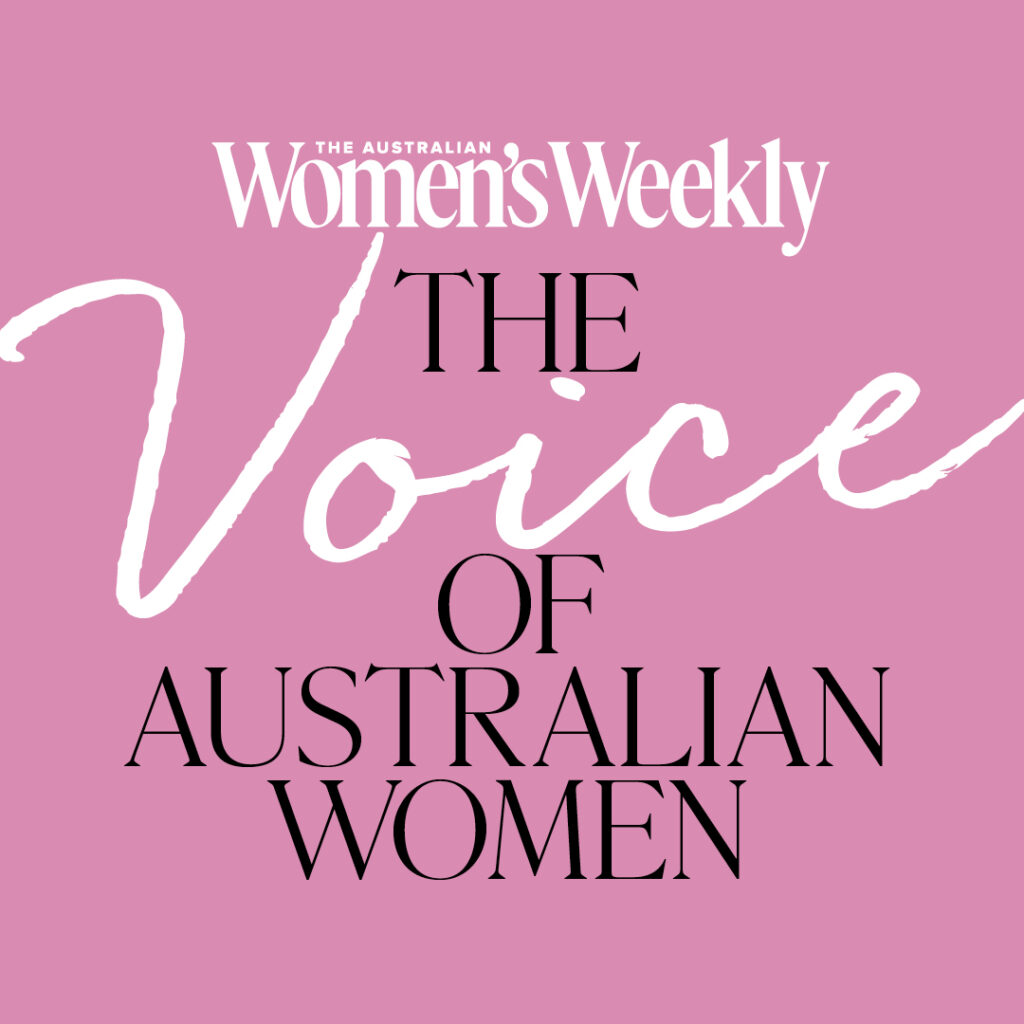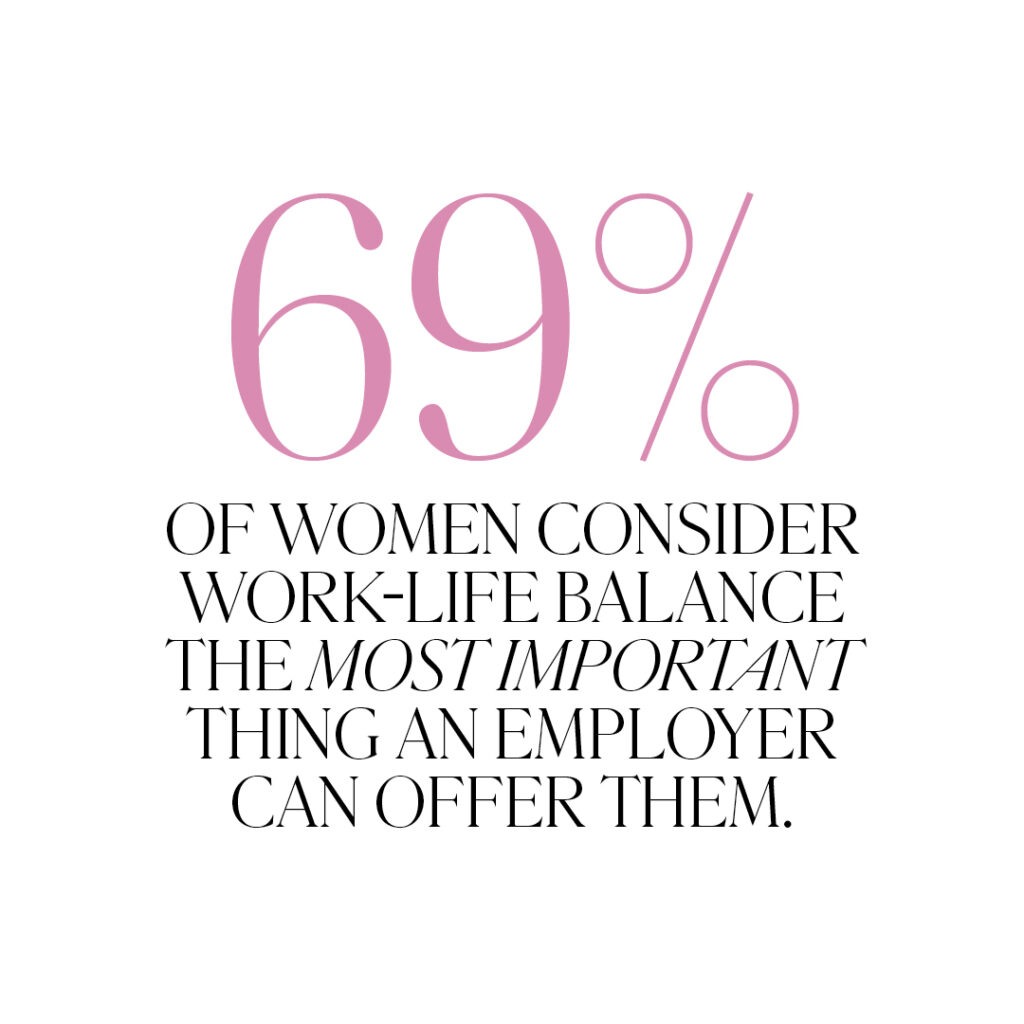
Posted 2 November 2023 in Announcement

Australian women have let their voices be heard and the message is clear – they want equality, according to the new The Australian Women’s Weekly 2023 The Voice of Australian Women survey.
Are Media’s The Australian Women’s Weekly surveyed more than 5,000 women across the country, covering a wide range of topics including domestic violence, sex, career, mental health, menopause, household responsibilities and more. The Australian Women’s Weekly conducted similar landmark surveys in 1980 and again in 2007.
For Australian women, career is more important than ever but finding the balance is critical. Sixty-nine per cent of women consider work-life balance the most important thing an employer can offer them, followed by salary (65%), flexible working hours (60%), location (54%) and gender equality (44%). The high scores in these areas underline the juggle many women face in their daily lives, beyond career, with the survey also highlighting that household responsibilities most often sit with women.
While women push for equality at work, at home they shoulder the majority of domestic tasks. Sixty per cent of Australian women do all, or the majority, of the cooking in their household; 61% of Australian women do all, or the majority, of household cleaning; and 73% of Australian women are responsible for all or the majority of the life admin in their house, including managing appointments, purchasing gifts, and so on. The only area that sat higher with other members of the household was outdoor housework, but 25% of women do all or majority of this.
Are Media General Manager – Lifestyle, Nicole Byers, said: “I found the survey results equal parts fascinating and sobering. While it is clear that progress has been made and felt in areas of women’s rights and equality, there is still a way to go before we significantly close the gender gap. Interestingly, it seems a significant amount of that work needs to be done closer to home than we had suspected.”

Are Media Research Manager, Renee Watson, said: “The Voice of Australian Women survey highlighted some incredible improvements in the lives of women but also that we still have a long journey ahead. We’ve come so far when it comes to sex, with women now much more comfortable with their sexuality, valuing their own pleasure more than ever and being honest with their partners.
“However, despite many of the advances we saw in the lives of women, they are still facing inequality in the workplace and in their homes – not just with the share of traditional domestic chores but also in dealing with the mental load that comes with caring for a family. These inequalities, combined with the fact that more than a third of women said they had experienced coercive control at some point in their lives, further reinforces the need to continue pushing for action to improve the lives and safety of women.”
The survey laid bare Australian women’s demand for an end to domestic abuse. Many of the women surveyed talked about the urgent need to address the continuing high rate of violence in the home – and the number of women surveyed who have suffered firsthand is staggering. Thirty-four percent of women said they had experienced coercive control in a relationship; the most common forms were emotional abuse (83%), social abuse (47%), physical abuse (42%) and financial abuse (35%).
National advocacy body, Our Watch, CEO, Patty Kinnersly, told The Australian Women’s Weekly: “The gender pay gap is a conversation about inequality and how these inequalities and disrespect contribute to violence. One of the drivers of violence against women is men’s control of decision making and limits to women’s independence…. when women earn less, they don’t have the same economic or financial security as men. This can reduce the choices and the level of independence women have.”
Mental health is also a key a concern for Australian women. More than half (57%) of the women surveyed have experienced a psychological condition, including 69% of women aged 18 to 24. Among these women, anxiety was the most prevalent condition, mentioned by 78% of women, followed by depression (65%).
Australian women’s sex lives have changed since the first The Australian Women’s Weekly survey in 1980 with a decline in frequency. In 1980, 57% of couples were having sex at least once a week; now it is 36%. Despite the fall in frequency, seven out of 10 women say that they are satisfied with their sex lives, and 18% always reach orgasm during sex, up from 13% in 1980.
Relationships Australia, CEO, Elisabeth Shaw, said: “I think, in years past, there was a hell of a lot of dutiful sex. A lot more women were having sex when they didn’t want to, and [now] there’s a little bit more permission, socially, for that not to be the case… I think that women, in my experience, do now feel more entitled to say no because they don’t want to, and that’s as it should be.”
The survey also highlighted the need for more education about, and acceptance of, menopause and perimenopause. More than half the women surveyed had been through menopause or perimenopause, and 61% agree there is a stigma around menopause. In addition, the overwhelming majority of women (94%) said there needs to be more perimenopause education for women.
Are Media – where connection ignites attention